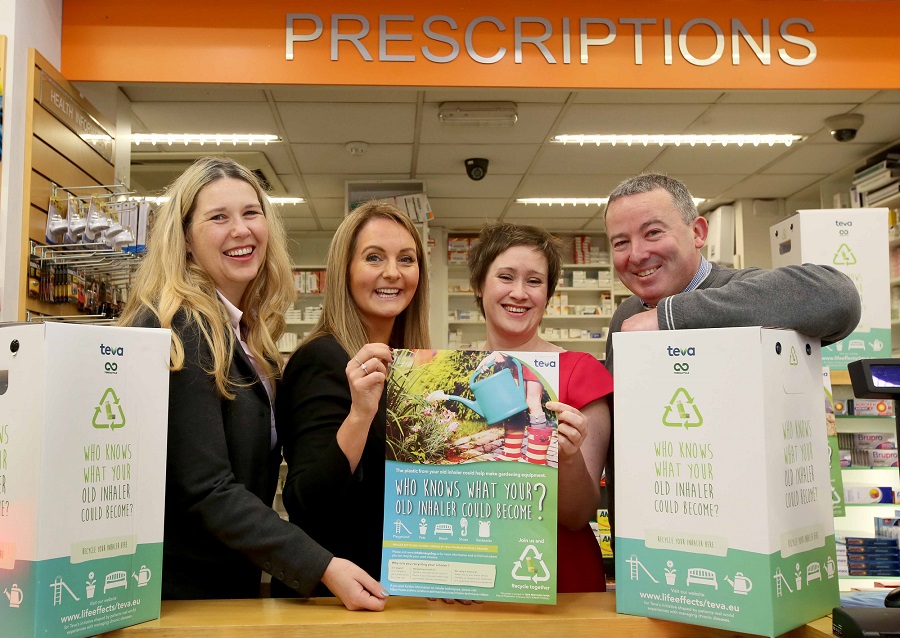Digital Dun Laoghaire’s February meetup tackled the difficult question: are you ready to leave that safe job and start-up a business?
The beginning of the year is always ripe for change. It’s the time where we take our “Next year, I will” and turn it into reality.
Starting a new business is one of the biggest personal and professional challenges that you can undertake. Thankfully, it’s not necessary to go it alone.
“You have to have a funding strategy. Too many people give away too much equity for too little”
Digital Dun Laoghaire’s February meetup the expert panel of speakers covered all the options that new entrepreneurs have at their disposal when taking the leap and starting their business. It was clear from the meetup that there are a huge amount of supports available to you no matter what your industry or niche is. You just need to know where to look and how to use them strategically.
This month’s expert panel included: AnnMarie Phelan of IADT Media Cube, Owen Lavery of DLR County Council, Stacey Connolly of Beachhut PR and Startupdigest, and John Kennedy, editor of ThinkBusiness.ie.
Delighted to open the 1st 2020 Digital DunLaoghaire morning meet-up – great turnout…for an interesting informative start to the day. @DigitalDLT @DunLaoghaireTn @GlasshousesWork pic.twitter.com/DYwE9HB8gb
— chadgilmer (@chadgilmer) February 26, 2020
Are you ready to take the leap to become a full-time entrepreneur?
One of the most anxiety-inducing questions asked about starting a business is how to know when you’re ready to take the leap from full-time employee to self-employed. In other words, when is it time to leave the day job behind and put all your eggs in your own basket?
According to the panelists, the answer is different for each entrepreneur. Unfortunately, there’s no magic amount of money in your bank account or number potential initial buyers that says you’re ready to start.
Stacey Connolly offered some helpful advice that differs from what you might expect. Although validation is important, she says to take with a pinch of salt the advice of family and friends, whose advice is emotionally driven. Instead, get out there and find validation among your potential customers. If you can’t go find validation for your idea outside your circles, then you’re not ready to be an entrepreneur.
Validation rules over everything
Validation was a big theme among all the panellists because it’s one of the basic building blocks of product and service development. You need more than conviction and belief in your idea, particularly if you want to bring your new business to one of Ireland’s formal support systems.
Our panelists agree: the first thing you need to do before taking the leap into your start-up is validate, validate, validate. Hit the pavement. Talk to end users. Ask questions and then ask more. You need to know your customers believe in your idea as much as you do! pic.twitter.com/R9coA9kq7I
— Dún Laoghaire Business Association (@dunlaoghaireb_a) February 26, 2020
AnnMarie Phelan of IADT’s Media Cube shared her expectations for ventures that arrive on her doorstep. She expects that any business that applies to join Media Cube has already gone out and worn out some shoe leather in seeking validation.
Validation is incredibly important because it’s one of the only ways to reduce the element of risk in your business.
Tech businesses in particular need to do this. AnnMarie asks any fledgling tech start-up to go out and talk to people who are going to use tech. It’s the end user — not the designer or developer — who matters most during your early stages.
What about your day job? How do you balance your day-to-day demands with a new business?
Owen Laverty of DLR County Council says that data shows that people who stay in their day job and work on validating their customers from the comfort of their bi-weekly paycheck do better. Having an income makes the validation process less stressful.
“The time to drown in stress will come, but trying to force it too early could leave you clinging to ideas that aren’t viable — if only because you left your job to try to see them through.”
AnnMarie recommends that those serious about product development consider asking their employer for a sabbatical. Then, you can go away and put 100% of your effort into your business and still have a paycheck to return to if needed.
Learn how to talk about your business
The early stages of business development are difficult, but if there’s a core skill you need to survive, it’s learning how to talk about your business. Nailing a 30-second elevator pitch should be every entrepreneur’s priority.
Stacey Connolly of Beachhut PR says this can be one of the biggest obstacles new entrepreneurs face. You need to start refining your message from the very beginning. Your prospective clients, investors, and supporters don’t want to hear about a theory or belief. They want to hear your key messages.
PR isn’t easy for new businesses, but you have resources for spreading your message once you nail it down. Entrepreneurship programs and co-working spaces are always looking for success stories, so reach out and look for ways to collaborate.
Investors are part of the journey, not a destination
Cash flow is another obstacle facing new and growing businesses. The panellists all agreed: you need to overestimate your overhead and underestimate your revenue, because you’ll always spend more and earn less than you think.
John Kennedy of ThinkBusiness.ie also underscored the value of investors, but he warned the audience to approach their investor strategy with care. Getting investors isn’t the end of your story, it’s part of the journey, and you need to seek investors accordingly.
“Investors aren’t a destination, investors can have different objectives for the business and you may, over time, end up with a small holding in the company.”
Sometimes, taking on an investor can hurt your business because you chose the wrong one. Remember that investors make key decisions in the business, so you need someone who’s not only willing to write you a cheque but is also compatible with your vision.
Owen Laverty also underlined the importance of having a funding strategy. “You have to have a funding strategy. Too many people give away too much equity for too little. You end up giving too much of your business away when you undervalue your company. You could also lock out further investment by giving it away [too early].”
There are supports available – use them!
Making the jump into entrepreneurship differs for every person. There’s no one right or wrong way to go about it, and the beauty of starting your own business is that you’ll get to experience it for yourself.
When the panellists were asked to share their rules of thumb for new businesses, and they came up with this:
We're wrapping up with a few rules of thumb from our panel:
1. You're a resource yourself. Keep that in mind when you scale.
2. You need to want to be the best.
3. Write your own press release as an exercise.
4. Have humility. Take on other ideas. pic.twitter.com/5p4qMcIpW9— Dún Laoghaire Business Association (@dunlaoghaireb_a) February 26, 2020
Just remember that there are supports available through your Local Enterprise Office, start-up incubators, mentorship programs, and co-working spaces. You don’t have to go it alone to make your business stand out from the crowd.
After the event panel member John Kennedy visited the DigitalHQ facility to learn more about its work in helping SMEs leverage digital and town centre renewal.
It was a pleasure to show @MrJohnFKennedy of @thinkbusinessie around @DigitalHQclg above @bankofireland #DunLaoghaireTown this morning. Thanks to our board member @RonPMcNamara for filling him in on our model for town centre #renewal pic.twitter.com/JCfOiZz5BR
— Dargan Institute clg, Dún Laoghaire (@darganinstitute) February 26, 2020
Pictured at top (from left): John Kennedy, ThinkBusiness.ie; Stacey Connolly, Beachhut PR; Owen Lafferty, Dun Laoghaire-Rathdown County Council; and AnnMarie Phelan, IADT Media Cube.
Footnotes:
- To date Digital Dun Laoghaire has delivered 32 free events with 1300+ attendees and 94 expert speakers. Would you like to join Digital Dun laoghaire’s next event? The next meetup is Thursday March 26: https://www.eventbrite.ie/e/business-briefing-how-to-promote-your-business-online-tickets-85401769993
- DigitalHQ clg, a not-for-profit social enterprise supported by Bank of Ireland and DLR LEO, delivers the Digital Dun Laoghaire programme of events, see our profile of DigitalHQ in action here: /articles/digital-hq-dun-laoghaire-neta/
Published: 28 February, 2020
-
Bank of Ireland is welcoming new customers every day – funding investments, working capital and expansions across multiple sectors. To learn more, click here
-
Listen to the ThinkBusiness Podcast for business insights and inspiration. All episodes are here. You can also listen to the Podcast on:
-
Apple
-
Spotify
-
SoundCloud






